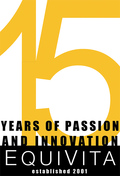In the too much stress and not enough recovery state of overtraining, your resting heart rate will increase and your resting body temperature will decrease. This is the exact opposite of what happens in the optimal training zone. And I think even if you haven’t considered this before, it makes some intuitive sense. Not giving yourself the space to recover means that you can’t effectively adapt. Your body’s ability to respond to the stressor and become stronger, faster or have increased endurance is hindered because of the lack of rest needed for recovery to happen.
Now, let’s take this simple understanding of overtraining the body and consider if something similar can happen to other areas. Deep thinking is a fairly easy one to compare, because it is similarly exhausting to spend time in focused deep thought. Less obvious is the background thinking. Those thoughts that can be running all the time and provide no sense of rest are exhausting, yet, because they aren’t as obvious they are harder to address. Similarly, emotional overtraining is sometimes obvious and overwhelming, and other times those heightened emotions are likely to be overlooked and unaddressed.
We live in a time when we are inundated with stories that are specifically designed to elicit an emotional reaction. And as hard as we may try to not allow ourselves to be pulled into the reaction, our brains can work against us as it pursues its goal of knowing. When presented with a gap of knowledge the brain will actively try to fill the void rather than find comfort in not knowing. In fact, this drive is so powerful that the brain will sometimes fill the void with fabrications, because that is more comfortable than allowing a gap to remain.
I find that understanding these things about our nature is very helpful in creating a bigger understanding of our society, and I also believe that if people could realize how their lack of allowing space for recovery has impacted their ability to adapt then they might choose differently. Much like overtraining of the body hinders one’s ability to achieve optimal results, overtraining of your mental and emotional self will hinder you. It is maybe not as obvious, but it is every bit as important.
Unfortunately, I don’t know of a simple tool to assess whether you are overtraining your brain, but you might be able to pick up on indicators by reflecting on how irascible or reactive you are. Reflecting, however, requires taking time to gain some objectivity and the respite that can be found in that time is also where you will find the benefits.
I encourage you to design a plan that provides you with daily opportunity to turn off the incessant stream, find some calm and maximize your adaptability.
And, as always, let me know how I can help.
Adam

 RSS Feed
RSS Feed
